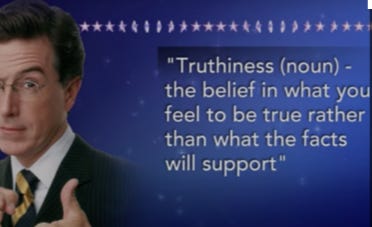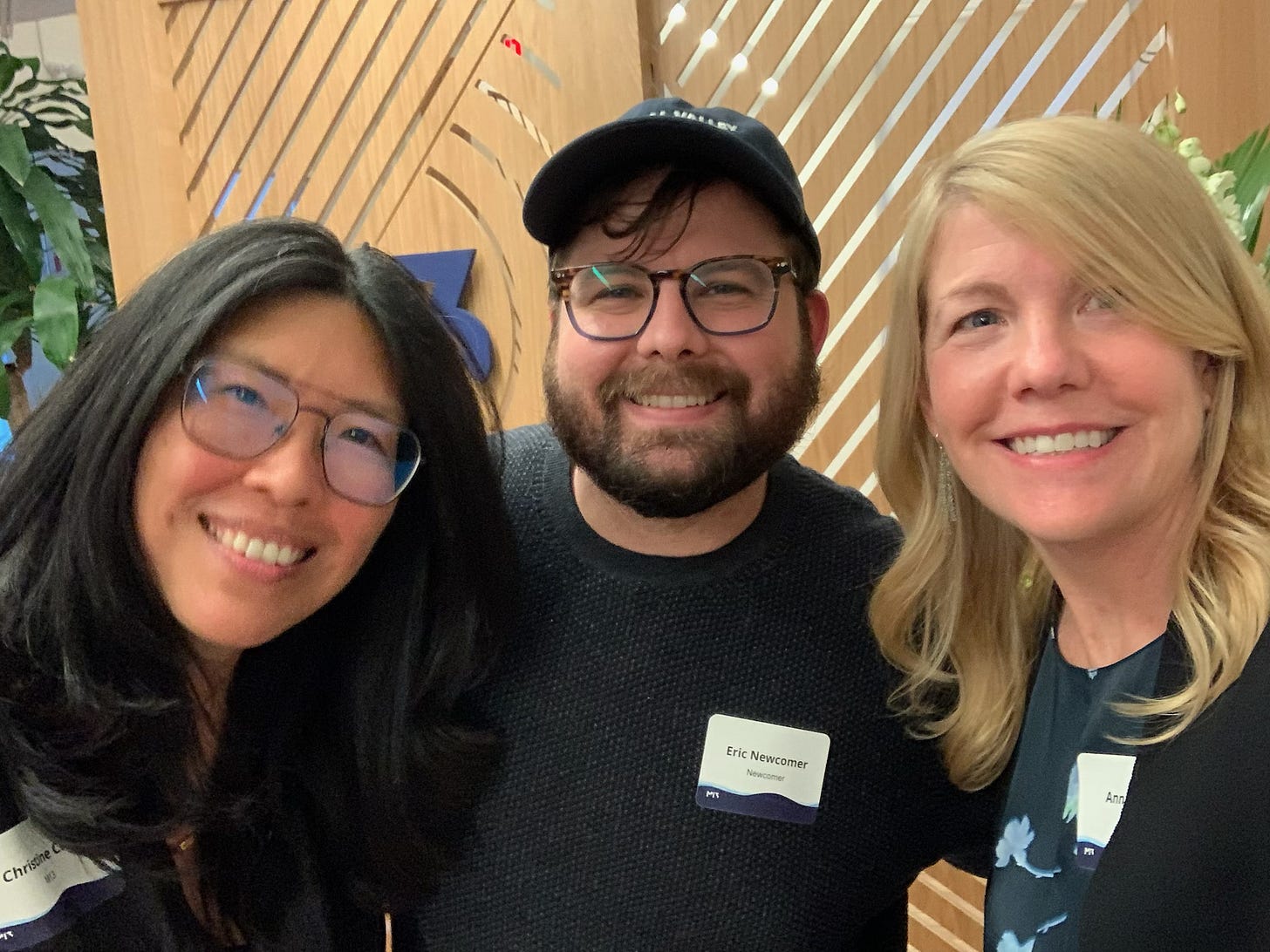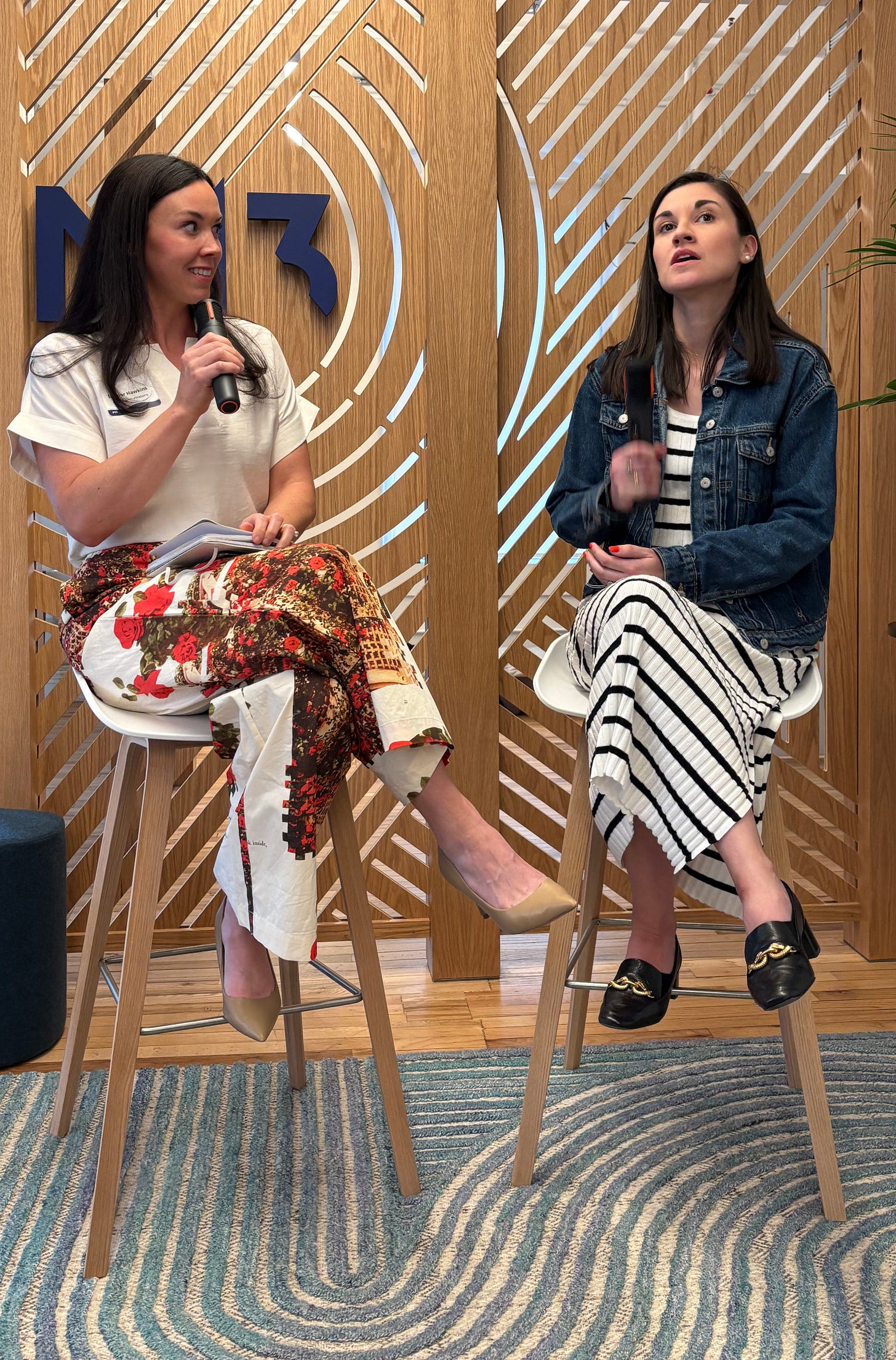Dispatch on new media models: building trust with Eric Newcomer and Polina Pompliano
In a time of too much shouting in the public square, how do media earn trust essential to reaching audiences? This dispatch looks at modern media models through the work of Polina Pompliano and Eric Newcomer, who were featured in M13’s recent media event.
Back in 2011, a well-respected boldface name (do we say that anymore?) journalist chewed me out for putting them on the same bus as tech bloggers.
I get it. How can decades of writing for one of the most trusted outlets of our time get you the same access as bloggers from digital newsletters, remember new to the scene, with names like Engadget, GeekWire, Gizmodo, Jaunted, Mashable, and VentureBeat?
The rise of the tech blog happened in the early days of commercial aerospace.
Companies like mine were helping aviation and aerospace reporters understand the engineering behind space innovation.
With space billionaires came the business reporters. They wanted to cover the personalities behind space innovation.
With tech came the bloggers. They wanted to cover the engineering and the personalities behind space innovation.
It was a lot. The aerospace reporters who covered NASA knew that space is not a race, but the personality-driven folks didn’t care.
We didn’t know it then but we were building a playbook for a new media ecosystem and a pivot to personality that we’re in today as readers and newsmakers.
In 2005 on The Colbert Report, Stephen Colbert coined the phrase “truthiness.”
He was not wrong. We’re in a post-fact era. We’re good with truthiness. And we are choosing to add more people, not institutions, into our news feeds.
In the tech and investing ecosystem, founders and investors are encouraged to “go direct.” The advice may have originated to bypass overly critical legacy media with limited startup context. This approach sort of describes today’s multi-channel long tail where customers, investors and talent are found in the niches.
We can all get better at storytelling and engaging our audiences. Last week we hosted a gathering featuring new media leaders to understand how they work. Today's media build trust not only with what they cover but also who they are. So we conducted short Q&As to get to know each of our speakers.
“When you choose who to follow on Twitter or Instagram, you're choosing your future thoughts,” said James Clear to Polina.
We heard from Polina, Eric, Ed Elson (I wrote about him here), Zack Guzman (here), and Upstarts Media founder Alex Konrad (more soon).
Their relationship to power, access and money shapes our perspectives on startups and their investors as well as the leadership we emulate.
Here’s what I, a reader, can tell you about the work of Polina and Eric, who have built businesses through original reporting, events and podcasts.
You read Eric to keep up.
And you read Polina to slow down.
Think: the arena versus the inner world.
Eric enjoys proximity to power and poking at it.
Polina uncovers the internal power beneath status.
Polina studies how successful leaders achieve greatness. She uses storytelling not to reveal scandal but to uncover truths about human resilience, courage, and identity.
Polina is a trailblazer in new media. I first got to know her writing through Fortune TermSheet, which she was editing when she started The Profile, which turned eight this year (congratulations!).
A former Bloomberg reporter who started Newcomer as a newsletter in 2020, Eric is the ultimate insider-outsider with the access to make public what’s private in high-stakes Silicon Valley, the independence to take a sharp read on power, and the curiosity to care about “why the tech world operates like it does.”
Eric and his team wield a journalistic skepticism. Occasionally he can’t resist a dash of outrage ("I called Chamath ‘the scam in the arena.’") but it’s to hold power to account with both edge and fairness.
Let’s hear from Eric, starting with what makes a Newcomer story.
“Our slogan is ‘your seat at the cap table.’ We get a lot of subscribers when we write about venture performance. We try to have a sense of what deal is hot at a given moment. Sometimes that leads us astray.”
“You have to keep reinventing the wheel. The way you do that is to be excited about things. I'm excited about money and politics. I don't commit to certain days of the week. We do have, thanks to [former BI reporter] Madeline Renbarger, a consistent Friday page but it does sort of go through my moods.”
A Newcomer story is characterized by in depth insider long form analysis that signals intellectual independence. Mood-based publishing is part of the charm and authenticity of the Newcomer brand.
On his first hires.
“You go off on your own, and you're like, ‘I'm done with newsrooms!’ And now I’m happy that it’s no longer a one person job. It's fun to build a company and a team that works together. You get to be so proud of their great work.”
(Hey Madeline and Riley!) Eric loves writing but has grown into being a founder. There may be a natural tension between his passion for storytelling and the operational weight of running a business named after him. That honesty makes Eric relatable to founders figuring out how to scale without losing their original purpose.
On how Eric sees founders now that he’s a founder.
“You understand how hard things are. It has created a little more of an optimistic product, productive, less judging. Sometimes journalists can have a ‘this was a path not taken, and it could have been this.’ But there might not have been a path if not for this company getting created.”
“If you're going to be a startup, you need to find ways to differentiate from the competition. One of them is to build in public. So I announced last year that we generated more than $2 million in revenue.”
Eric knows he’s in the business of news and discusses profit and revenue streams, reflecting the transparency Newcomer expects in their subjects.
On community.
“There's a great symbiosis between who's reading the newsletter and who's going to our events. That’s community. It has been sort of a key word here tonight, and certainly community is key to my business.”
The audience is the subject. Independent news creators earn both trust and stories through their communities.
On the Newcomer legacy he’s building.
"That we stayed true to startups and venture capital. People build media businesses thinking they’re going to do everything. Startups and venture capital are endlessly interesting. So the story will be that we stayed laser focused on the community that we really believe in. That I didn't drift from that.”
I asked Eric what the headline would be if Bloomberg wrote about the Newcomer empire in ten years.
We need more stories of hard work and leadership models we believe in. Thank you for finding us interesting, Team Newcomer!
Now let’s hear from Polina.
In a chaotic world with brash characters, Polina’s coverage is calm, light with elegance and built for meaning and introspection. She doesn’t project herself as a "media founder" so much as prioritizes a clear inner compass when curating stories that matter.
On the shift from audience to community.
“I learned a very important lesson in writing so often and so early: people subscribe to people. We trust people instead of these faceless institutions. When [Fortune] TermSheet came from Polina, people felt more inclined to respond and say, ‘you’re wrong,’ or ‘how about this.’ It was a true community versus coming from the magazine.”
Polina started writing TermSheet in 2017 and The Profile, her personal newsletter, in 2019. The day she told us TermSheet readers that she was starting a newsletter was the day I began reading The Profile: she is a meaning-maker, consistently curating stories worth telling. Also the skill here is connecting with her readers through low-ego storytelling shared in her name.
On choosing who to profile.
“I don't have an editor who has to tell me what to cover and whether there are constraints. I don't have to focus on a certain stage or type of founder. The people that I love to write about are people with something to prove. Maybe they're not an underdog but that's how they feel.”
Polina leans into what she is genuinely interested in: character and wisdom. She reflected that what’s important for her is not a massive audience but a super specific reader.
On learning from successful people.
“The most successful people have probably reinvented at some point or were forced to reinvent. I think it's very rare to find a really, really successful person who settled in their path. They usually set out to achieve something, you have a horrible fall, you stay down for a while, you learn something from it. And then you take what you've learned and rise again.”
On what cuts through in our noisy media world.
“Long form original content. That’s the rarity in a sea of short and punchy.”
So does precision and an introspective voice. Polina reads between the lines, identifies frameworks and recurring patterns, and distills life lessons.
On how to get started.
“You can plan all you want. Eventually, life will slap you in the face. Don’t overthink it that much. Just start.”
Eric and Polina show us two paths for new media creators to earn trust: by inviting audiences into the arena or into the inner world.
Thank you for sharing your insights with our founders and investors, Eric and Polina. It was also lovely to see your loyal and trusted teammates by your side.
Next up: what happens when the audience doesn’t just observe but also owns the platform?
In my next dispatch, I’ll share what I learned from Zack Guzman, who left his anchor job at Yahoo! Finance to start a community-owned media company. It’s truly not what I’d expected, on so many levels.
Let me know what you think, and see you next time.





